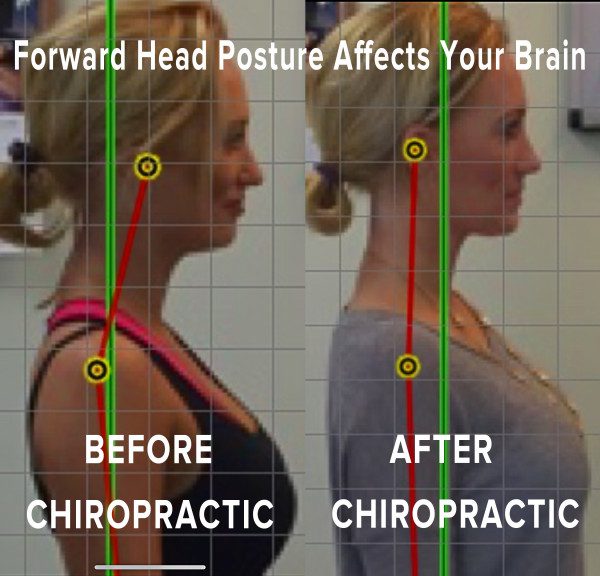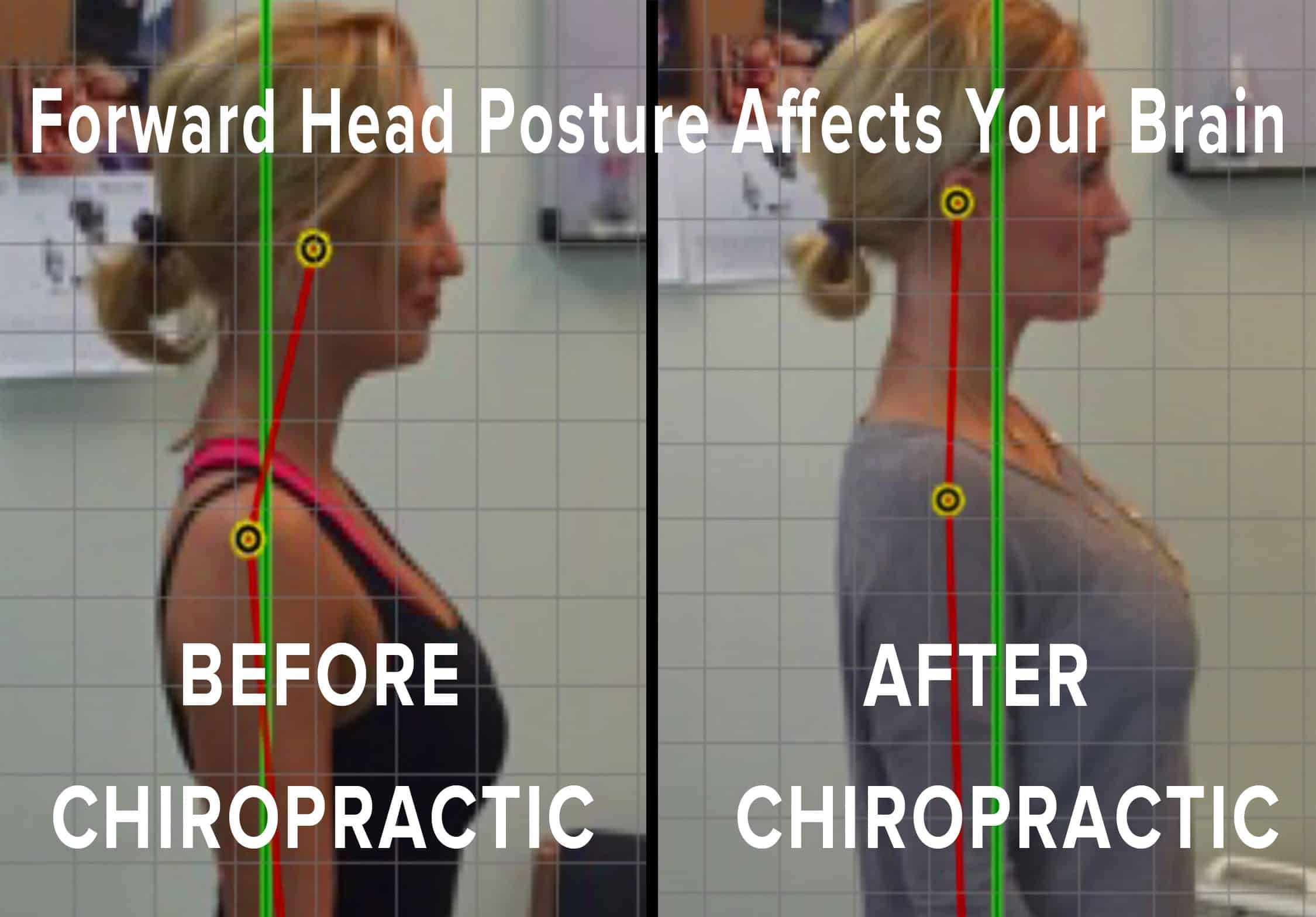Excerpts Taken From An Article Published On The Australian Spinal Research Foundation Website
Recent research efforts have served up significant findings in terms of the effect of the nervous system on our skeletal muscles. However, less research has gone the other way: i.e. How does our posture, and specifically head and upper neck posture, effect our nervous system and sensorimotor function? The Journal of Gait and Posture has accepted a study for publication, which gives some indications on the latter, which are truly noteworthy. In fact, they just might send you to your local chiropractor to get that forward head posture sorted out!
The study, submitted in 2019, took in 160 participants, 50% of which had forward head posture and 50% of which had normal head alignment. The authors found that biomechanical dysfunction of the spinal column may lead to abnormal afferent (nerve impulses traveling towards the brain) information. That is, the feedback into your brain from your upper neck area may become distorted. The specific areas they were looking at were the cervical (neck) sections of the spine.

…
So too are the findings on the autonomic nervous system (a subset of the central nervous system, which manages everything your body does without you having to think about it).
The study measured the amplitude and latency of the skin’s sympathetic response: that is the level and speed with which the skin reacted to stimulation or stress. Electrodes were placed on the skin of participants to measure the skeletal muscle activity via the skin.
Essentially, what this study did was point out the implications of forward head posture in terms of feedback into the brain, and then back out to the muscles. There were a number of significant findings including:
- Cervical sagittal alignment (or the alignment of your upper neck and head) affects sensorimotor control and the Autonomic Nervous System (ANS).
- Normal posture is essential for sensorimotor control, potentially because it allows normal processing of afferent information, which goes into the brain.
- The study found a large disparity between the amplitude findings of the forward head posture group and the normal head alignment group. Researchers didn’t find any significant difference in latency (or speed) but the amplitude (or force of the measure) was significantly lower in the normal head alignment group. Those with forward head posture experienced greater amplitude, which indicates higher sympathetic activity (which is essentially an overreaction to the stimuli). This highlights the importance of normal head posture in the normal balance of the autonomic nervous system.
- The study found that forward head posture is associated with abnormal ANS function and disturbance of cervical sensorimotor control.
The last two points are particularly poignant. The autonomic nervous system is split into parasympathetic (which governs all human “rest, digest, reproduce and repair” functions) and sympathetic (which governs all fight or flight responses). We need both, but what we don’t need is our sympathetic system overreacting to stimuli, or interpreting our body position as a stressor in itself and then pumping this distorted information back into the brain. When the brain receives distorted information from the body, it reacts to that information in a heightened fashion. Thus, it’s a case of “distorted information in, distorted response out.”
Here, we can clearly see the importance of good head alignment so the brain can deal with better, more accurate information.
TRUCHIRO: Bottom line here is that forward head posture creates stress on your nervous system and adversely effects your brain’s ability to control the function of your body. This is for adults and kids alike. Please have your posture checked by a chiropractor as soon as possible. Please contact the chiropractor who shared this or find a TRUCHIRO in our searchable database at www.truchiro.org
REFERENCES:
- Ibrahim M Moustafa, Ahmed Youssef, Amal Ahbouch, May Tamim, Deed E. Harrison (2020), “Is forward head posture relevant to autonomic nervous system function and cervical sensorimotor control? Cross sectional study, Gait and amp: Posture (2020), doi: https://doi.org/10.1016/j.gaitpost.2020.01.004 retrieved 16 Jan 2020
- Staff Writer, (2016), “Stress on the spine: the downside of prolific social media use,” Australian Spinal Research Foundation, https://spinalresearch.com.au/stress-on-the-spine-the-downside-of-prolific-social-media-use/
- Haavik H, and Murphy B (2011), “Subclinical Neck Pain and the Effects of Cervical Manipulation on Elbow Joint Position Sense,” JMPT Vol 34, Iss 2, Feb 2011, pp. 88-97, https://doi.org/10.1016/j.jmpt.2010.12.009
- Daligadu J, Haavik H, Yielder P, Baarbe J, and Murphy B (2013), “Alterations in Cortical and Cerebellar Motor Processing in Subclinical Neck Pain Patients Following Spinal Manipulation,” JMPT Vol 36, Iss 8, October 2013 pp. 527-537, https://doi.org/10.1016/j.jmpt.2013.08.003
- Baarbe J, Holmes M, Murphy H, Haavik H, Murphy B (2016), “Influence of Subclinical Neck Pain on the Ability to Perform a Mental Rotation Task: A 4-week Longitudinal Study with a Healthy Control Group Comparison,” JMPT Vol. 39, Iss. 1, Jan 2016 pp. 23-30, https://doi.org/10.1016/j.jmpt.2015.12.002
- Farid B, Yielder P, Holmes M, Haavik H, and Murphy B (2018), “Association of Subclinical Neck Pain With Altered Multisensory Integration at Baseline and 4-Week Follow-up Relative to Asymptomatic Controls,” JMPT Vol. 41 Number 2. Feb 2018, pp. 81-91



